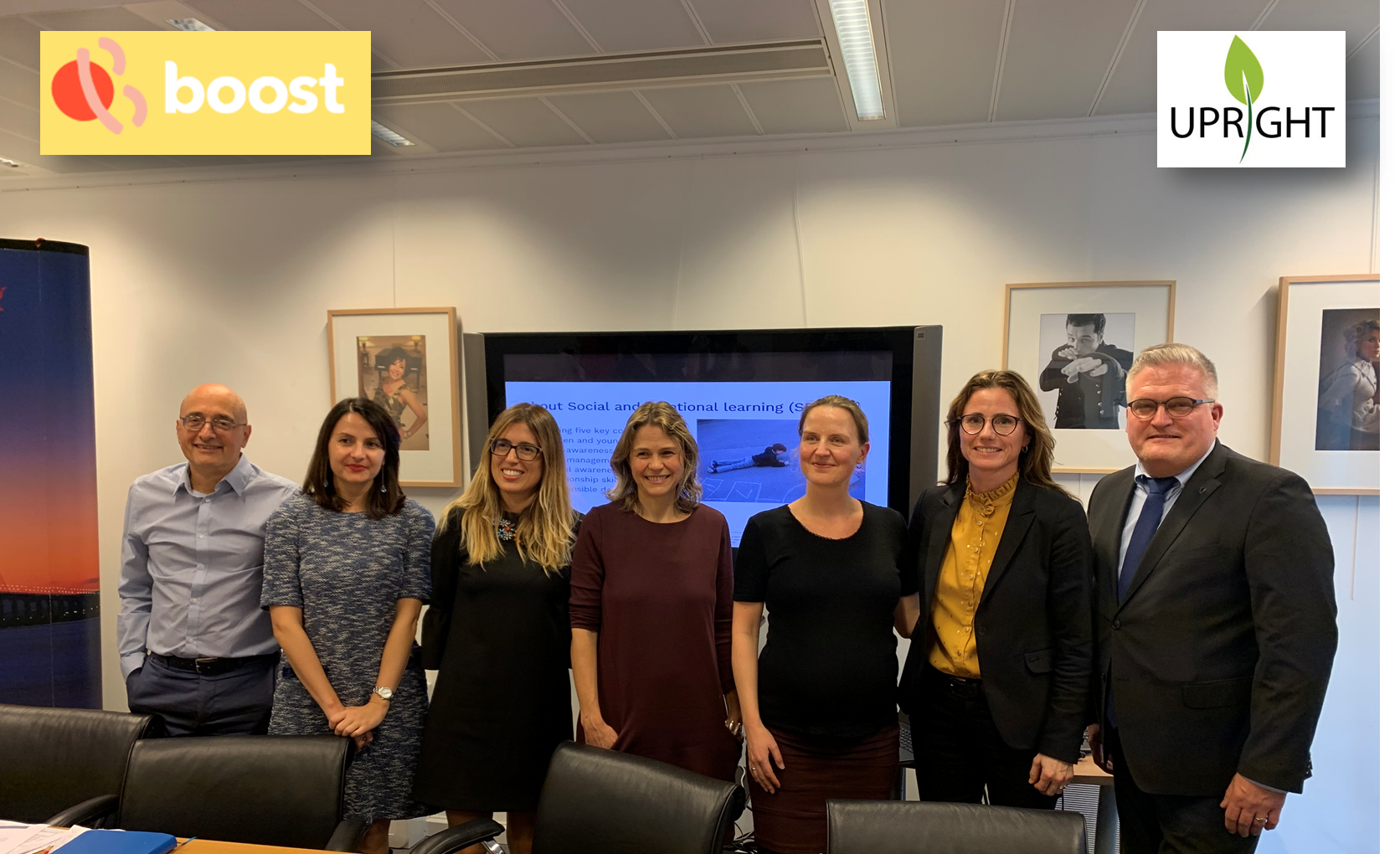The event took place on 24 October at the facilities of EUREGHA – European Regional and Local Health Authorities in Brussels.  The goal of this session was to debate how to contribute to the “Welfare economy” by developing the social and emotional abilities of European children and teenagers, through the support of the schools and teachers. The event was organised by BOOST, a project funded by the Horizon2020 programme that seeks to promote mental health resilience among European children and teens. Participating experts seek to improve resilience through Social and Emotional Learning (SEL) in terms of mental health of this population. Social and Emotional Learning is defined as a process by which people of all ages acquire and efficiently apply knowledge, attitudes and abilities to comprehend and manage their emotions. The SEL ability seeks to establish and reach positive goals, feel and show empathy towards others, establish and maintain positive relationships and make responsible decisions.
The goal of this session was to debate how to contribute to the “Welfare economy” by developing the social and emotional abilities of European children and teenagers, through the support of the schools and teachers. The event was organised by BOOST, a project funded by the Horizon2020 programme that seeks to promote mental health resilience among European children and teens. Participating experts seek to improve resilience through Social and Emotional Learning (SEL) in terms of mental health of this population. Social and Emotional Learning is defined as a process by which people of all ages acquire and efficiently apply knowledge, attitudes and abilities to comprehend and manage their emotions. The SEL ability seeks to establish and reach positive goals, feel and show empathy towards others, establish and maintain positive relationships and make responsible decisions.
It is important to highlight the participation of Vladimir Garkov, an official of the European Commission, who highlighted the need to make a change in primary education and to work on Social and Emotional Learning from a very young age. According to Garkov, the European Commission is implementing measures to provide guidelines for the Member States to develop social and emotional competence within their societies. The coordinator of the BOOST European project emphasised that the implementation of SEL-based learning is vital and contributes to the overall well-being and happiness of children.
Kronikgune, representing the UPRIGHT project, participated in the round table on the importance of working on education and the potential of boys and girls and achieve a true “Welfare economy“.
The UPRIGHT European project, “Universal Preventive Resilience Intervention Globally implemented in schools to improve and promote mental Health for Teenagers”, aims to promote mental well-being and prevent mental illness, by building resilience in adolescents (12 to 14 years of age). To achieve this purpose, it seeks to strengthen personal confidence and the cognitive function of young people, empowering them in four abilities: coping, efficiency, social and emotional learning and “mindfulness”. Within the framework of this project, an effective and universal holistic action has been implemented, aimed at teenagers, families, education professionals and schools in five European regions: Trent, Denmark, the Reykjavik area, Lower Silesia and the Basque Country. Thanks to the UPRIGHT manual, developed and co-designed by mental health experts and end users, experts are working on these four components and their different abilities. Qualitative and quantitative techniques will enable the evaluation of the UPRIGHT programme and will provide scientific evidence on the specific resilience factors that contribute to the promotion of positive mental well-being in young people.
If you want to know more about what happened at the event, click on this link: https://twitter.com/BOOST_MHealth/status/1187376664038301699
Learn more about UPRIGHT by visiting its official website: www.uprightproject.eu or follow their day-to-day on @Uprightproject1.





